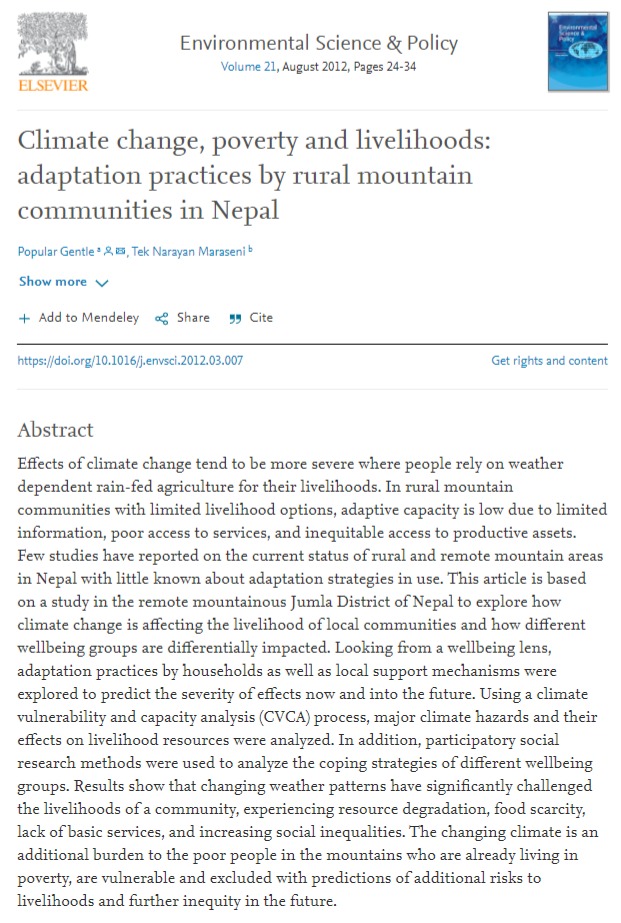
Effects of climate change tend to be more severe where people rely on weather dependent rain-fed agriculture for their livelihoods. In rural mountain communities with limited livelihood options, adaptive capacity is low due to limited information, poor access to services, and inequitable access to productive assets. Few studies have reported on the current status of rural and remote mountain areas in Nepal with little known about adaptation strategies in use. This article is based on a study in the remote mountainous Jumla District of Nepal to explore how climate change is affecting the livelihood of local communities and how different wellbeing groups are differentially impacted. Looking from a wellbeing lens, adaptation practices by households as well as local support mechanisms were explored to predict the severity of effects now and into the future. Using a climate vulnerability and capacity analysis (CVCA) process, major climate hazards and their effects on livelihood resources were analyzed. In addition, participatory social research methods were used to analyze the coping strategies of different wellbeing groups. Results show that changing weather patterns have significantly challenged the livelihoods of a community, experiencing resource degradation, food scarcity, lack of basic services, and increasing social inequalities. The changing climate is an additional burden to the poor people in the mountains who are already living in poverty, are vulnerable and excluded with predictions of additional risks to livelihoods and further inequity in the future.